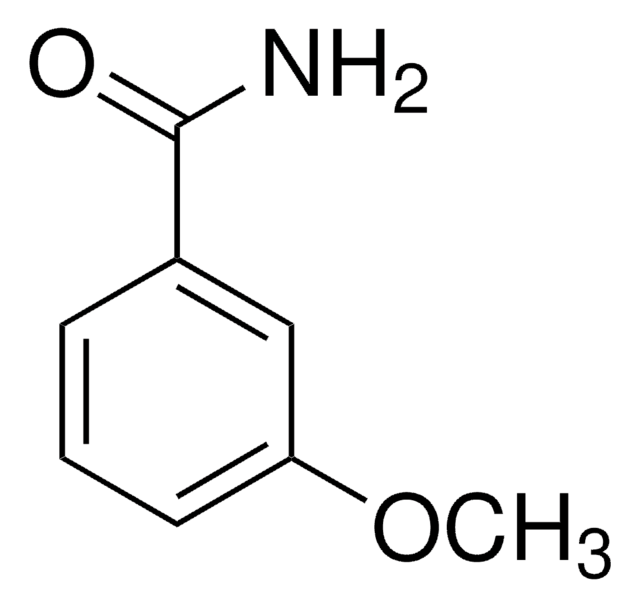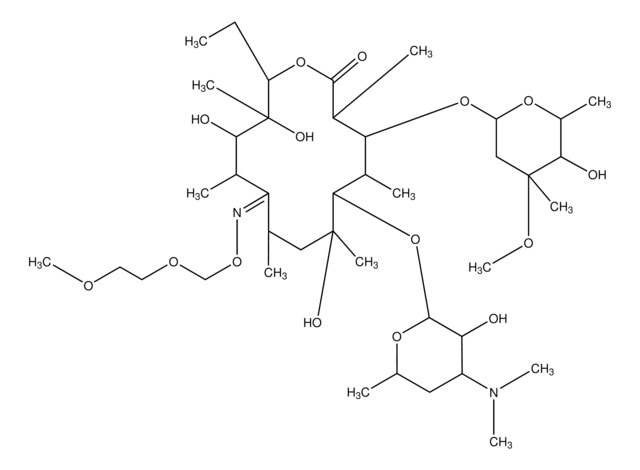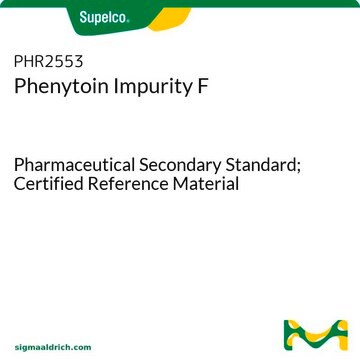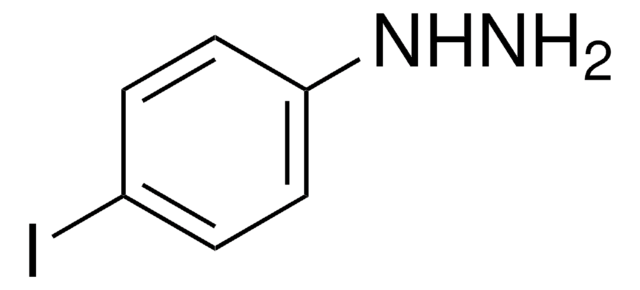161454
5-(p-Methylphenyl)-5-phenylhydantoin
≥99%
Synonym(s):
5-(4-Methylphenyl)-,5-phenylimidazolidine-2,4-dione, 5-Phenyl-5-(p-tolyl)hydantoin, MPPH, NSC 32105
About This Item
Recommended Products
Assay
≥99%
form
powder
mp
225-226 °C (lit.)
solubility
soluble 50 mg/mL, clear to slightly hazy, colorless to light yellow (DMF:HCl(2:1))
SMILES string
Cc1ccc(cc1)C2(NC(=O)NC2=O)c3ccccc3
InChI
1S/C16H14N2O2/c1-11-7-9-13(10-8-11)16(12-5-3-2-4-6-12)14(19)17-15(20)18-16/h2-10H,1H3,(H2,17,18,19,20)
InChI key
WPAPSGQWYNPWCZ-UHFFFAOYSA-N
Looking for similar products? Visit Product Comparison Guide
Application
Signal Word
Warning
Hazard Statements
Precautionary Statements
Hazard Classifications
Acute Tox. 4 Oral - Carc. 2 - Repr. 2
Storage Class Code
13 - Non Combustible Solids
WGK
WGK 3
Flash Point(F)
Not applicable
Flash Point(C)
Not applicable
Personal Protective Equipment
Certificates of Analysis (COA)
Search for Certificates of Analysis (COA) by entering the products Lot/Batch Number. Lot and Batch Numbers can be found on a product’s label following the words ‘Lot’ or ‘Batch’.
Already Own This Product?
Find documentation for the products that you have recently purchased in the Document Library.
Our team of scientists has experience in all areas of research including Life Science, Material Science, Chemical Synthesis, Chromatography, Analytical and many others.
Contact Technical Service










